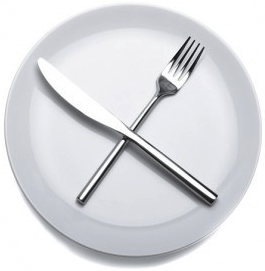Purify Yourself Inside and Out with Fasting
It’s the month of Ramadhan again. Body and spirit should be ready to stop or lessen all the habits we usually do on normal days, including eating. Read more on Gold’s Gym interview with Stefani Indriyasti, SGz, a nutritionist at Gold’s Gym Citywalk Sudirman, Jakarta about the right eating habit during fasting month. Get ready to purify yourself again this year!

Gold’s Gym (GG): What are the benefits of fasting for our body?
Stefani Indriyasti, SGz (SI): Fasting has many benefits for our body, ie:
· To rest our digestion system
· As a natural detoxification process
· Improve our immune system
· Reduce joint pain
· Lower blood pressure, sugar level, and cholesterol
· Reduce excess liquid in the body
· Lose weight
GG: What food do you recommend to eat during break-fasting and suhoor (pre-fast meal)? And why do you recommend them?
SI: Fasting is beneficial for our health. However, many people do not measure their breakfast and suhoor meal correctly. This can even cause some diseases or illness. Most people overeat during breakfast as a compensation for not eating or drinking all day. The correct eating habit is during the fasting month is:
· Normal breakfast meal is equal to break-fast meal. Lunch is equal to suhoor meal, while dinner is equal to the meal after Tarawih prayer.
· When break-fasting, your body only needs 20%-25% of the total daily calorie needs, therefore you only need to consume fresh fruits, drinks, or even bread.
· For suhoor meal, your body needs 40% of the total daily calorie needs. Opt for complete healthy meal of rice, meat, vegetables, and milk. The same applies for the meal after Tarawih prayer.
GG: Do we need to take food supplements during the fasting month?
SI: While fasting, basically we do normal activities with less food intake. This can cause exhaustion, fatigue, and we are also prone to diseases and illness. To supply our body with enough nutrition, taking food supplements is advised.
GG: What food should we avoid during the fasting month?
SI: It is advisable to avoid this type of food:
· Deep fried food
· Food with high sugar content such as sweet coconut dessert (kolak) and iced fruit cocktail, iced fruit soup, chocolate, and cakes.
· Fatty food such as chicken skin, offal, coconut milk, and fatty meat.
GG: Is our calorie intake during fasting period different from when we are not fasting?
SI: On a normal condition, our average daily need of calories is 2000 Cal, while when we are fasting it tends to decrease. When we fast, our meal schedule shift to night time (evening), which is after the evening prayer and in the early morning. There is a tendency to consume high-calorie food when we break-fast, while during suhoor, we consume low-calorie food.
It is important to keep exercising, with some adjustment on the intensity, and I advise to consume more complex carbohydrate such as oatmeal, whole-wheat bread, and milk.
GG: If we have a digestion problem, what is the ideal way to fast?
SI: Actually, by fasting, people with digestion problem “fix” their digestion system, since the meal time is more scheduled. However, some people with acute digestion problem is not advised to fast. Basically, they should stick to eating frequently in small portions. The perfect strategy to avoid digestion problem is to eat enough during suhoor meal, consume enough carbohydrate and protein from meat. When break-fasting, eat gradually in small portions. Start with snacks and liquid such as tea with a little bit of sugar or a slice of low-sugar cake. Do the Maghrib prayer then continue with your main meal.
Fasting or not, if you have digestion problem, there are a few food you need to avoid:
1. Gassy food and food with high fiber content such as chicory, cabbage, jackfruit, banana, hog plum, and also sodas.
2. Food that stimulates the release of gastric acid such as coffee, alcoholic drinks, and citrusy (sour) drinks.
3. Food that are hard to digest such as creamy cake, cheese, fatty food, and chocolate will slow down the work of your gastric. They can increase gastric stretching and increase the production of gastric acid.
4. Food that contains vinegar and pepper that can damage the gastric wall.
To fast smoothly, if you have any medical conditions, especially those related to digestion system, consult to your doctor or reliable nutritionists at Gold’s Gym.
Gold's Gym Mall Ciputra | Gold's Gym Mall of Indonesia | Gold's Gym Thamrin City | Gold's Gym Cilandak Town Square | Gold's Gym Baywalk Mall Pluit | Gold's Gym Kalibata City Mall | Gold's Gym Braga Citywalk | Gold's Gym Cihampelas Walk | Gold's Gym Summarecon Mall Serpong | Gold's Gym Mall @ Alam Sutera | Gold's Gym Bintaro X-change | Gold's Gym The Breeze BSD | Gold's Gym Grand City Surabaya | Gold's Gym Surabaya Town Square | Gold's Gym Grand Metropolitan Bekasi




